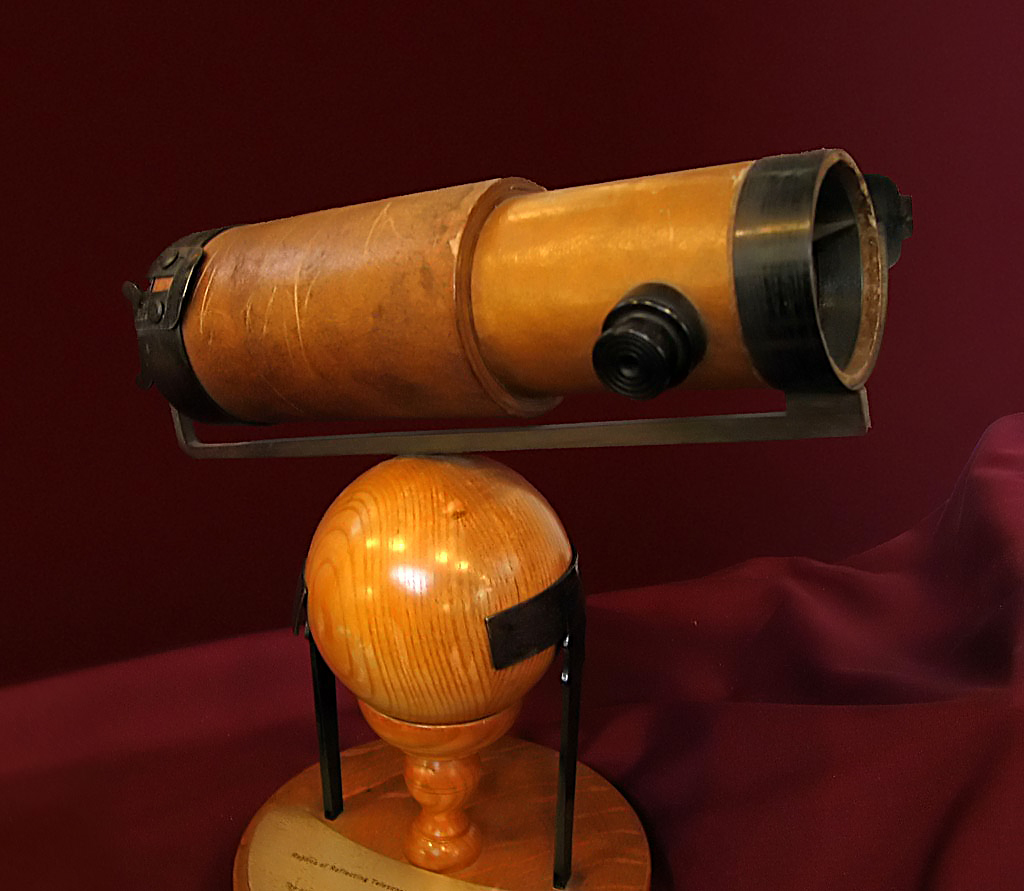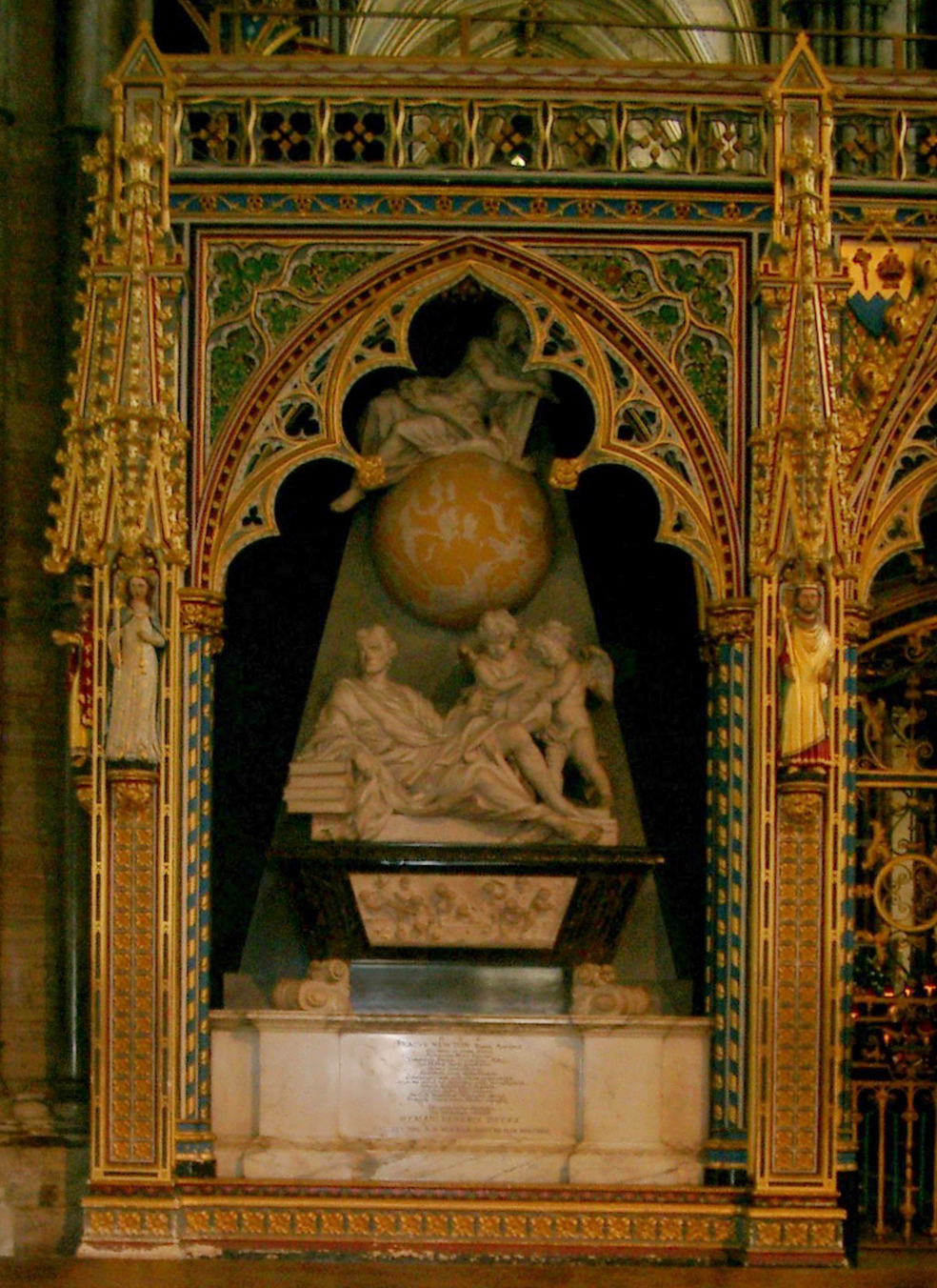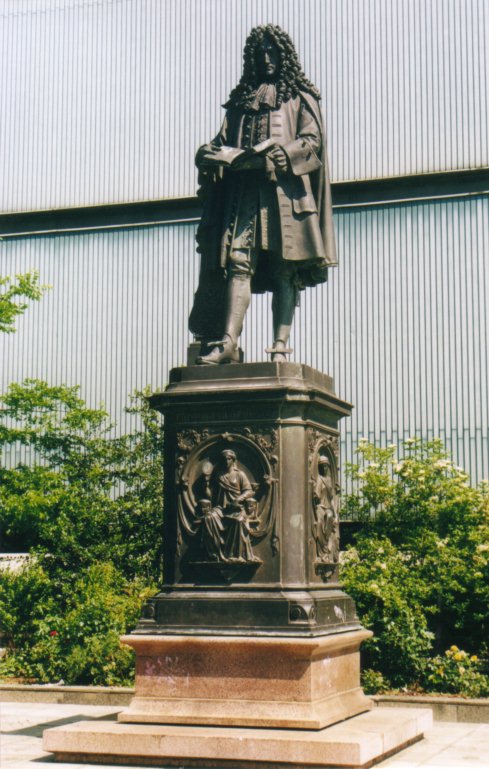Beginnings of Calculus
Short Account of the History of Mathematics
by W. W. Rouse Ball (4th Edition, 1908)
Cavalieri

 Biography in Dictionary of Scientific Biography
Biography in Dictionary of Scientific Biography
Encyclopaedia Britannica
(also:
Academic Edition,
requires campus password)
Crater Cavalierius
MACTUTOR.
Bonaventura Cavalieri
Full name:
Bonaventura Francesco Cavalieri
Born: 1598 in Milan, Duchy of Milan, Habsburg Empire (now Italy)
Died: 30 Nov 1647 in Bologna, Papal States (now Italy)
Summary:
Italian mathematician. Developed a method of indivisibles
which became a factor in the development of the integral calculus.
BRITANNICA.
Cavalieri, (Francesco) Bonaventura
Born: 1598, Milan [Italy]
Died: Nov. 30, 1647, Bologna, Papal States
Summary: Italian mathematician.
Made developments in geometry that were precursors to integral calculus.
The Galileo Project
Biography:
Bonaventura Cavalieri (1598 - 1647)
from Short Account of the History of Mathematics
by W. W. Rouse Ball (4th Edition, 1908)
WIKI.
Bonaventura Cavalieri
Full name: Bonaventura Francesco Cavalieri.
Latin, Cavalerius (1598–November 30, 1647)
Summary:
Italian mathematician.
Known for Cavalieri's principle: volumes of two objects are equal if the areas of their corresponding cross-sections are in all cases equal.
Developed a "method of the indivisibles" to determine areas and volumes.
A significant step on the way to modern infinitesimal calculus.
Geometria indivisibilibus (1635)
Trigonometria plana (1636)
Exercitationes Geometricae (1647)



Newton










 Biography in Dictionary of Scientific Biography
Biography in Dictionary of Scientific Biography
Encyclopaedia Britannica
(also:
Academic Edition,
requires campus password)
Crater Newton
Paris street name: Rue Newton (16th Arrondissement)
MACTUTOR.
Sir Isaac Newton
Born: 4 Jan 1643 in Woolsthorpe, Lincolnshire, England
Died: 31 March 1727 in London, England
Summary:
Greatest English mathematician of his generation.
Laid the foundation for differential and integral calculus.
Work on optics and gravitation make him one of the greatest scientists the world has known.
BRITANNICA.
Newton, Sir Isaac
Born: December 25, 1642 [January 4, 1643, New Style], Woolsthorpe, Lincolnshire, England
Died: March 20 [March 31], 1727, London
Summary:
English physicist and mathematician.
Culminating figure of the scientific revolution of the 17th century.
Optics: discovered the composition of white light.
Mechanics: 3 laws of motion,
law of universal gravitation.
Mathematics: discoverer of calculus.
Wrote: Philosophiae Naturalis Principia Mathematica (1687),
one of the most important single works in the history of modern science.
STANFORD 1 (Newton's Views on Space, Time, and Motion)
STANFORD 2 (Newton's Philosophy)
The Newton Project
The Galileo Project
Biography:
Sir Isaac Newton (1642 - 1727)
from Short Account of the History of Mathematics
by W. W. Rouse Ball (4th Edition, 1908)
WIKI.
Sir Isaac Newton (4 January 1643 – 31 March 1727) [ OS: 25 December 1642 – 20 March 1727]
Summary:
English physicist, mathematician, astronomer, alchemist, and natural philosopher.
Regarded by many as the greatest figure in the history of science.
Philosophiae Naturalis Principia Mathematica (1687)
describes universal gravitation and the three laws of motion.
Derives Kepler's laws
Enunciated conservation of momentum and angular momentum.
Inventor of the reflecting telescope.
Discovered the spectrum when white light passes through a prism.
Argued that light is composed of particles.
Formulated an empirical law of cooling, studied the speed of sound, and proposed a theory of the origin of stars.
Shares the credit with Gottfried Leibniz for the development of calculus.
The generalized binomial theorem, "Newton's method" for approximating the zeroes,
and contributed to the study of power series.
Lagrange often said that Newton was the greatest genius who ever lived.
English poet Alexander Pope: "Nature and nature's laws lay hid in night;
God said "Let Newton be" and all was light".


























 From a portrait by Godfrey Kneller in 1689
From a portrait by Godfrey Kneller in 1689
 From a portrait (1702) by Kneller
From a portrait (1702) by Kneller
 From a portrait (1712) by James Thornhill.
From a portrait (1712) by James Thornhill.


 From a portrait (1725) by John Vanderbank
From a portrait (1725) by John Vanderbank
 From a portrait (1726) by Enoch Seeman
From a portrait (1726) by Enoch Seeman
 This medallion was issued by the Royal Mint
in 1727 when Newton died.
This medallion was issued by the Royal Mint
in 1727 when Newton died.

 Newton portrayed as a divine geometer. (William Blake 1795).
Newton portrayed as a divine geometer. (William Blake 1795).
 Artemis holding Newton's portrait (by William Stukeley)
Artemis holding Newton's portrait (by William Stukeley)
 Replica of Newton's reflector telescope (6 inch diameter mirror)
Replica of Newton's reflector telescope (6 inch diameter mirror)
 Philosophiae Naturalis Principia Mathematica.
Newton's own copy of the first edition (with Newton's handwritten corrections for the
second edition).
Philosophiae Naturalis Principia Mathematica.
Newton's own copy of the first edition (with Newton's handwritten corrections for the
second edition).



 From his Optics.
From his Optics.
 Newton is buried in Westminster Abbey.
Newton is buried in Westminster Abbey.
Leibniz







 Biography in Dictionary of Scientific Biography
Biography in Dictionary of Scientific Biography
Encyclopaedia Britannica
(also:
Academic Edition,
requires campus password)
Crater Leibnitz
Paris street name: Rue Leibnitz and Square Leibnitz (18th Arrondissement)
MACTUTOR.
Gottfried Leibniz
Full name: Gottfried Wilhelm von Leibniz
Born: 1 July 1646 in Leipzig, Saxony (now Germany)
Died: 14 Nov 1716 in Hannover, Hanover (now Germany)
Summary:
German mathematician.
Developed the present day notation for the differential and integral calculus.
Didn't think of the derivative as a limit.
His philosophy also important.
Invented an early calculating machine.
BRITANNICA.
Gottfried Wilhelm Leibniz
Born: July 1 [June 21, old style], 1646
Died: November 14, 1716, Hannover, Hanover
Summary:
German philosopher, mathematician, political adviser.
Important both as a metaphysician and as a logician.
Distinguished also for his independent invention of calculus.
STANFORD 1 (Leibniz on Causation)
STANFORD 2 (Leibniz's Philosophy of Mind)
STANFORD 3 (Leibniz's Ethics)
STANFORD 4 (Leibniz on the Problem of Evil)
The Galileo Project
Biography:
Gottfried Wilhelm Leibnitz (1646 - 1716)
from Short Account of the History of Mathematics
by W. W. Rouse Ball (4th Edition, 1908)
Texts and Translations
Translations
WIKI.
Gottfried Leibniz
(July 1 (June 21 Old Style) 1646 – November 14, 1716)
Full name:
Gottfried Wilhelm Leibniz (also Leibnitz or von Leibniz)
Summary:
German polymath (wrote mostly in French and Latin).
Educated in law and philosophy.
Played a major role in the European politics and diplomacy of his day.
Invented calculus independently of Newton.
Notation in general use since.
Invented binary.
In philosophy: remembered for optimism
(best possible universe)
Contributions to physics and technology.
Anticipated notions in biology, medicine, geology, probability theory, psychology, and information science.
Wrote on politics, law, ethics, theology, history, and philology, even occasional verse.













 (in Leipzig)
(in Leipzig)
 (in Göttingen)
(in Göttingen)

 Biography in Dictionary of Scientific Biography
Biography in Dictionary of Scientific Biography













 Biography in Dictionary of Scientific Biography
Biography in Dictionary of Scientific Biography


























 From a portrait by Godfrey Kneller in 1689
From a portrait by Godfrey Kneller in 1689
 From a portrait (1702) by Kneller
From a portrait (1702) by Kneller
 From a portrait (1712) by James Thornhill.
From a portrait (1712) by James Thornhill.


 From a portrait (1725) by John Vanderbank
From a portrait (1725) by John Vanderbank
 From a portrait (1726) by Enoch Seeman
From a portrait (1726) by Enoch Seeman
 This medallion was issued by the Royal Mint
in 1727 when Newton died.
This medallion was issued by the Royal Mint
in 1727 when Newton died.

 Newton portrayed as a divine geometer. (William Blake 1795).
Newton portrayed as a divine geometer. (William Blake 1795).
 Artemis holding Newton's portrait (by William Stukeley)
Artemis holding Newton's portrait (by William Stukeley)
 Replica of Newton's reflector telescope (6 inch diameter mirror)
Replica of Newton's reflector telescope (6 inch diameter mirror)
 Philosophiae Naturalis Principia Mathematica.
Newton's own copy of the first edition (with Newton's handwritten corrections for the
second edition).
Philosophiae Naturalis Principia Mathematica.
Newton's own copy of the first edition (with Newton's handwritten corrections for the
second edition).



 From his Optics.
From his Optics.
 Newton is buried in Westminster Abbey.
Newton is buried in Westminster Abbey.







 Biography in Dictionary of Scientific Biography
Biography in Dictionary of Scientific Biography













 (in Leipzig)
(in Leipzig)
 (in Göttingen)
(in Göttingen)